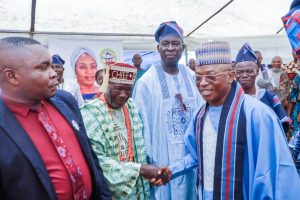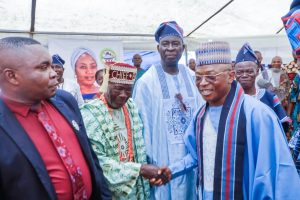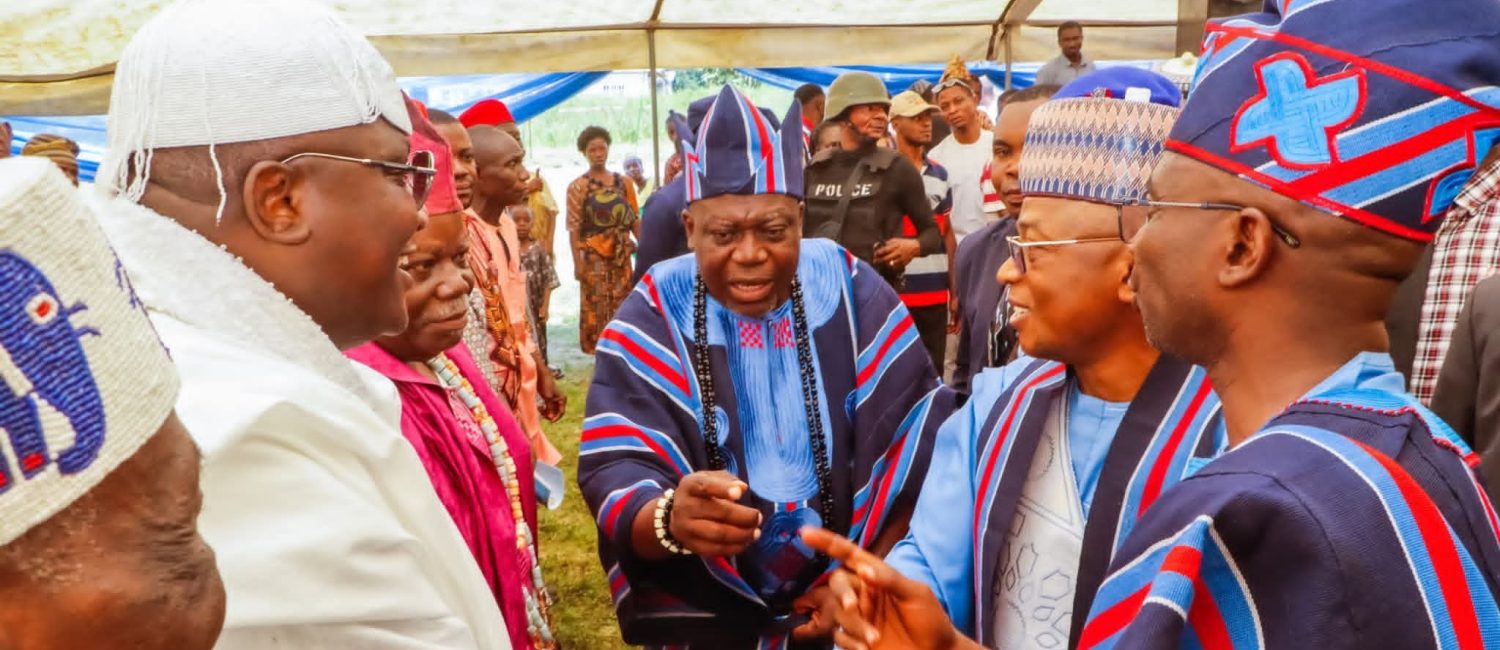





By Ebenezer Adurodija
Lokoja, Kogi State
At the 2025 Takete-Ide Day celebration, the community led by their illustrious son and Kogi State Commissioner for Information, Hon. Kingsley Femi Fanwo prostrated before the Deputy Governor, Comrade Joel Salifu Oyibo pleading for one thing their hearts long for: a road to connect them with the world.
The drumming had just quieted, and the air over Takete-Ide was heavy with emotion. The 2025 Takete-Ide Day celebration, meant to be a festival of pride and unity, took a solemn turn when the entire community — old and young, men and women — fell to their knees before the visiting Deputy Governor of Kogi State.
At the front was their son, Hon. Kingsley Femi Fanwo, the Commissioner for Information and Communication, standing not just as a state official but as a son of the soil. He joined his people in a symbolic act that spoke louder than words: a collective prostration — not of shame, but of appeal.. Their message was simple and deeply human: “Help us fix our road.”
For years, Takete-Ide, a peaceful and industrious community in Mopamuro Local Government Area of Kogi State, has been living in isolation caused by a crumbling road network. The road linking the community to Mopa and other neighbouring towns has become nearly impassable, its surface eroded by years of rainfall and neglect.
During the rainy season, the road turns into a river of red mud; during the dry months, clouds of dust choke farmers, traders and commuters alike. For a people known for hard work, the road has become a wall between their efforts and their prosperity.
“Sometimes, a journey of 20 minutes takes two hours,” says Mrs. Abigail Omotosho, a market woman. “We lose our goods, we lose our strength. Yet, we still hope.”
Farmers struggle to take their produce — yams, cassava, palm oil, maize — to markets in neighbouring towns. Pregnant women are carried on motorcycles to the nearest health centre. Students trek long distances daily.
The sight of the people of Takete-Ide, led by one of their own in government, humbling themselves before the Deputy Governor, was both moving and powerful. It was not a protest, nor an act of defiance. It was a message of love — love for their home, their heritage, and their belief that the government still listens.
“Your Excellency,” Fanwo said, addressing the Deputy Governor, “our people are not angry. They are only asking to be remembered. We are hardworking. We contribute to the peace and progress of Kogi State. We only need a road to make our dreams possible.”
His words were met with applause — not the loud kind of politics, but the soft, emotional rhythm of people whose hope refuses to die.
In his response, the Deputy Governor Comrade Joel Salifu Oyibo acknowledged the plight of the community, commending their resilience and unity.
He assured them that the administration of Governor Usman Ododo remains committed to ensuring that development reaches every corner of Kogi State — including Takete-Ide.
“We have heard you,” he said. “This government is for everyone.
Takete-Ide will not be forgotten.” The promise was received with cheers and tears — a mix of relief and lingering fear that their hope might fade again into silence.
For Takete-Ide, development is not about grand projects or political speeches. It’s about dignity — the ability to move freely, trade without loss, and live without fear of being cut off.
A road here is not just infrastructure; it is a lifeline. It means a pregnant woman can reach a hospital in time. It means a farmer’s sweat can yield income, not waste. It means the children of Takete-Ide can dream bigger dreams.
As the festival came to a close, the people rose from the dust — hopeful, prayerful, and united.
“We have done our part,” said Pa Amos Dada, an elder. “We have spoken with humility. Now we wait for government to answer.”
Their faith, like the red earth beneath their feet, runs deep. They may be a small community, but their plea reflects the heart of rural Nigeria — a yearning to be seen, to be included, and to be remembered in the story of progress.
Until that long-awaited road is built, the people of Takete-Ide will keep their hope alive — because even in the silence of neglect, the dust still speaks.







